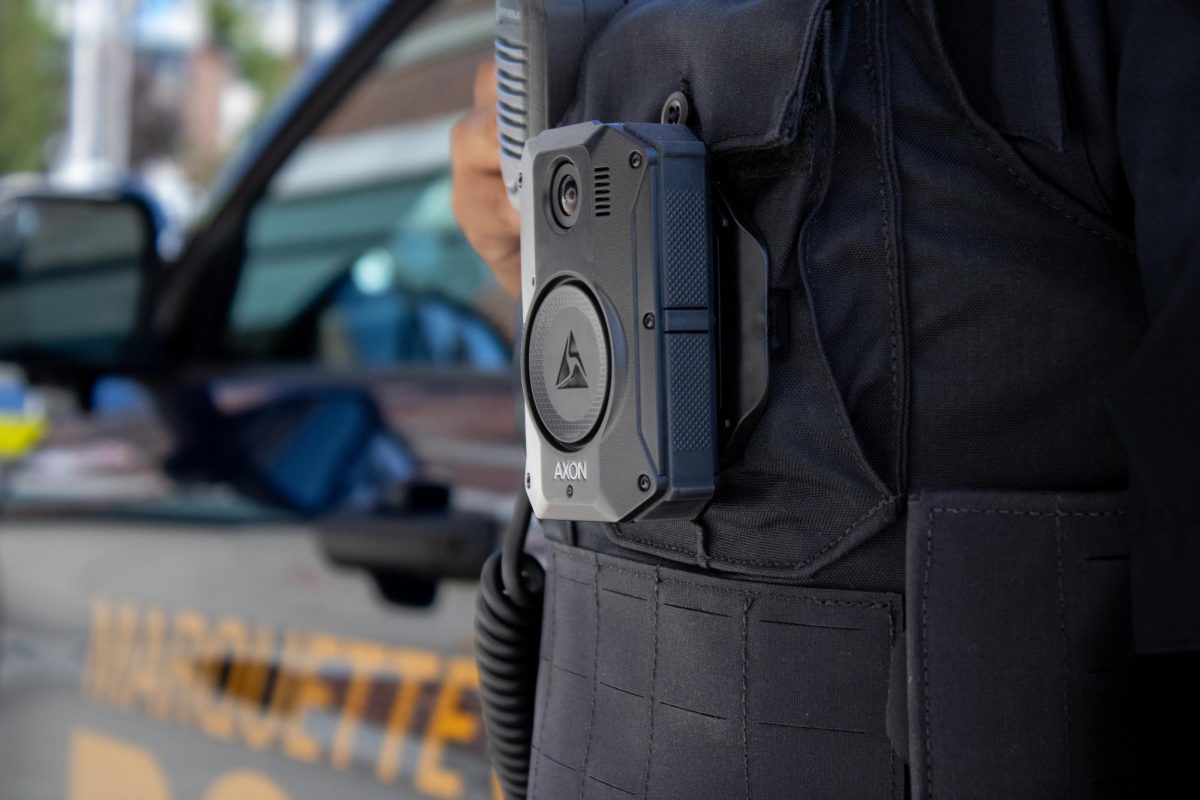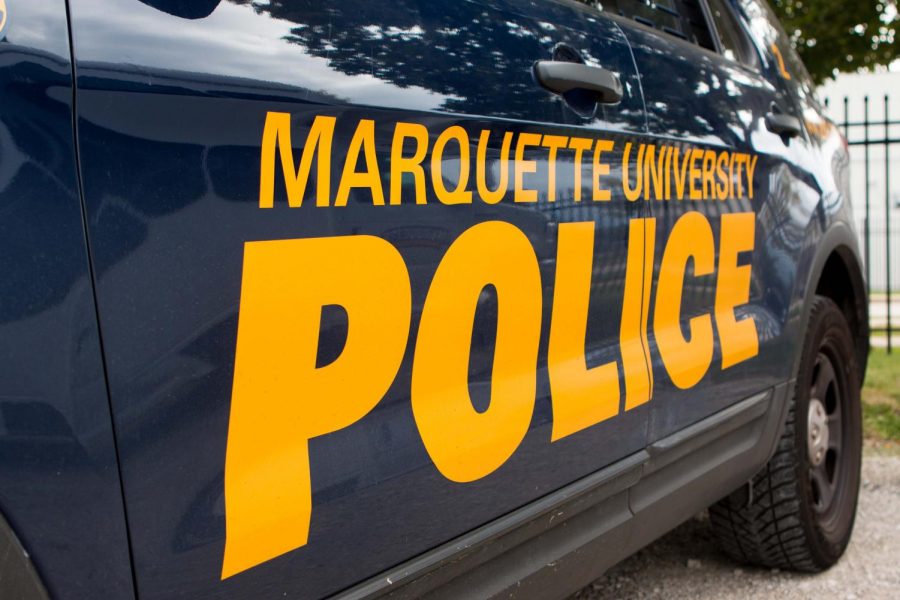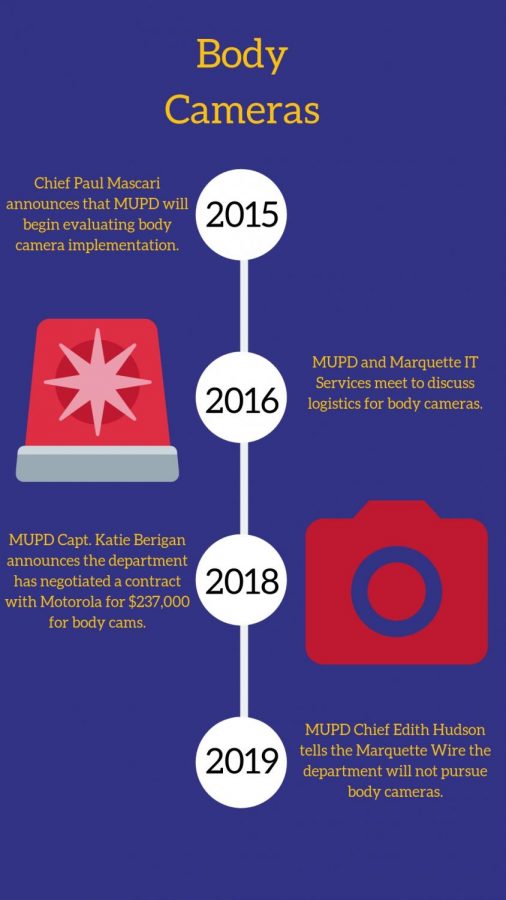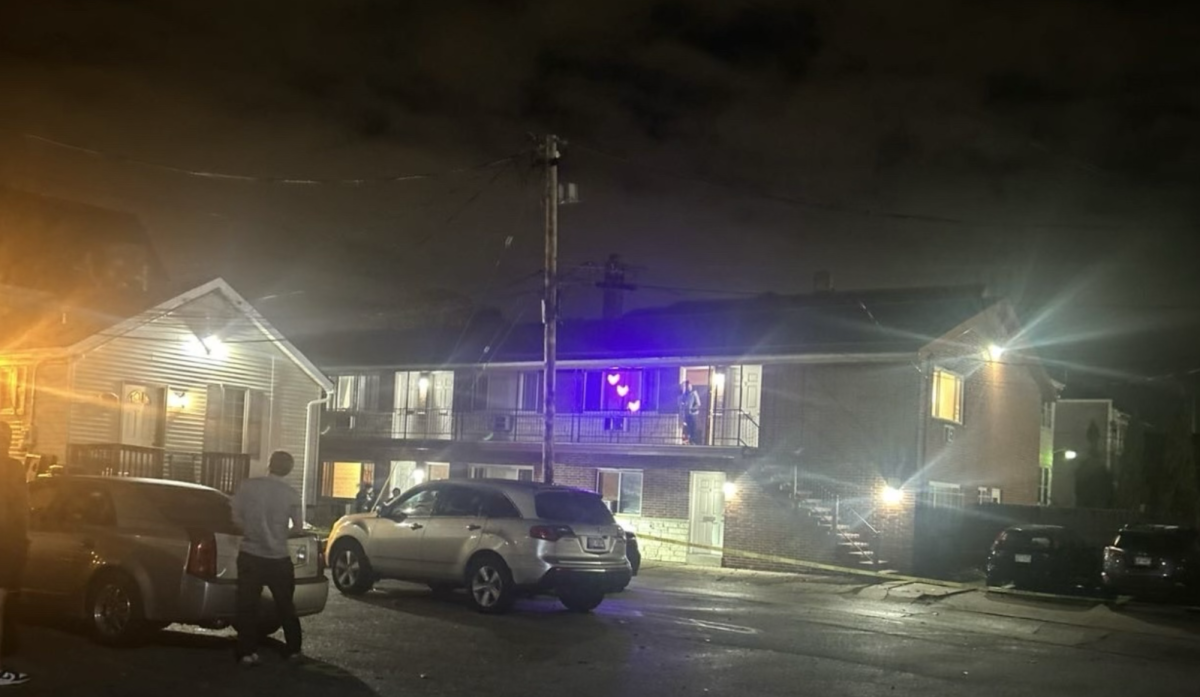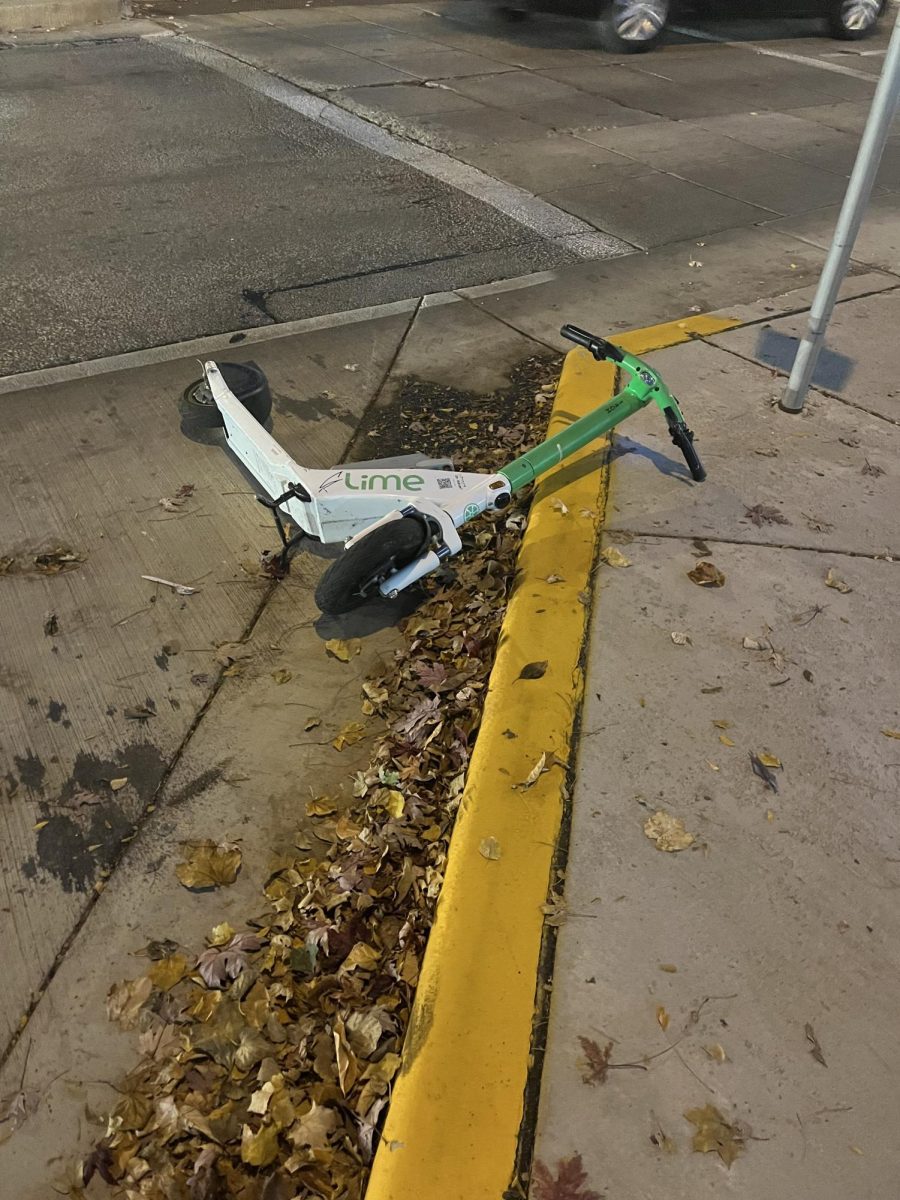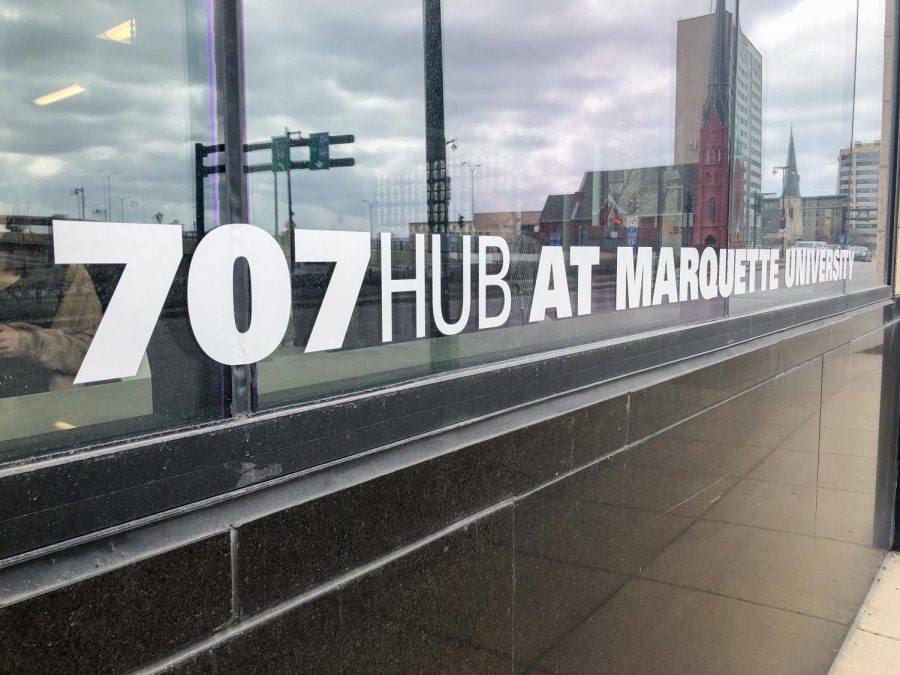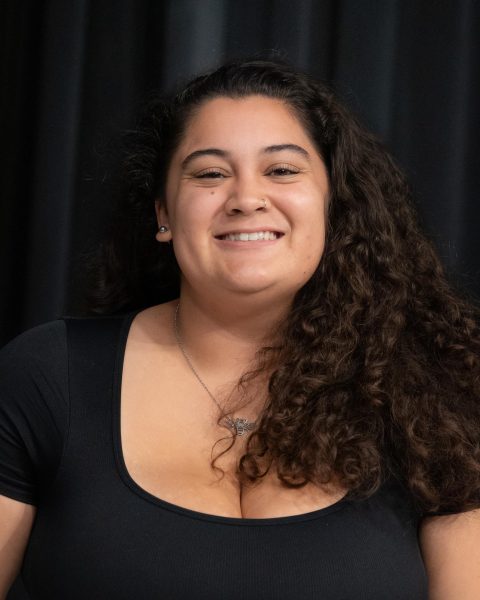After finishing its summer pilot program, Marquette University Police Department has officially decided to implement body cameras. This marks a step toward the further protection of our university and our community.
Since 2020, body cam usage has been on the rise around the country. MUPD joins 88% of Wisconsin law enforcement with this decision.
Locally, Milwaukee has been implementing body cameras since the death of Dontre Hamilton in 2014. Body camera footage could’ve provided evidence leading to prosecution and closure for Hamilton’s family. Additionally, using police recordings would have encouraged the department to take responsibility for the actions of their officer.
The cameras should be used to ensure accountability is placed on both the department and the public. Careful research and review of the footage should be enacted to ensure proper interpretation of the events occurring in a fair and just way.
However, accountability extends beyond just this measure. Open lines of communication between MUPD and the community can encourage honesty and trust between the two. A 2021 study showed that after implementing body cameras, there was a decrease in the amount of citizen complaints.
Using cameras creates a clear line of transparency between the police department and the civilians it is serving. In communities across the United States there is distrust of local police departments, but studies have shown that utilizing body cameras rebuilds trust.
However, this transparency only works if the footage is provided to the public. As of right now, recordings will only be given upon request. As MUPD navigates this new resource, we ask that the department make the protocols and channels for obtaining the footage clear and easy to understand.
More data from 2021 shows how body cameras resulted in increased arrests and more charges filed. There was also correlation between camera use and reduced case processing time.
It seems obvious to mention that the footage encourages the public to hold the department accountable, but this resource also pushes the community to take responsibility for their actions. Accountability is a two-way street and flows equally between both law enforcement and citizen.
Access to this sort of footage also serves as a learning opportunity. Reviewing video from different scenes and then taking in that knowledge can better serve the community in the future. This new resource can serve as a training tool to prevent complications in future situations.
To allow this teaching opportunity to slip by would be an unfortunate misstep. Officers can take this chance to learn from each other and see different policing methods in practice. Using this resource to improve current policing practice shows responsibility and a desire to grow.
Editorial topics by the Marquette Wire are decided at weekly meetings between members of the executive board. The editorial is crafted with leadership by the executive opinions editor. The executive board consists of the executive director of the Wire, managing editor of the Marquette Tribune, managing editor of the Marquette Journal, general manager of MUTV, general manager of MUR and the editor of diversity and inclusion.



